Send Us Your Queries
We are here to help you achieve your academic goals. Leave your details below and our coordinator will contact you.

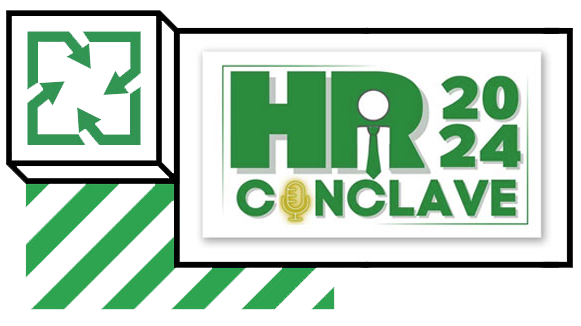

The HR Conclave is an annual convention, organized by Indian Institute of Plantation Management attended by experts from industry, from the HR world as well as academicians from various institutes.
Theme: Strategic Human Resource Management for Sustainable Business
In an era where global challenges demand responsible corporate practices, Strategic Human Resource Management (HRM) has emerged as a pivotal force in steering businesses towards sustainability. The integration of sustainability principles into HRM strategies is no longer an option but a strategic imperative for organizations aspiring to thrive in the long term.
Strategic Human Resource Management (HRM) plays a pivotal role in steering businesses towards sustainability, aligning organizational objectives with environmental, social, and economic responsibility. At its core, the strategic integration of HRM for sustainable business involves meticulous talent management. Organizations need to attract, develop, and retain individuals whose skills and values align with sustainability goals. This encompasses recruiting talent with a keen understanding of environmental issues, social responsibility, and the capacity for innovative thinking. Furthermore, HRM is instrumental in cultivating a workplace culture that champions sustainability, fostering an environment where employees are not only aware of their ecological and societal impact but actively contribute to the rganization’s broader commitment to sustainable practices.
Aligning Talent with Sustainability Goals
Strategically harmonizing human capital with sustainability objectives is a paramount facet of organizational management. This imperative involves adeptly aligning the skills, values, and ethos of the workforce with the overarching sustainability goals of the enterprise. Effectively executing this alignment requires a nuanced approach to talent acquisition, development, and retention, ensuring that individuals within the organization possess not only the requisite proficiencies but also a deep-seated commitment to environmental, social, and economic responsibility. This strategic fusion of talent and sustainability objectives establishes a foundation for a workforce that is not merely competent in conventional capacities but is also intrinsically motivated and dedicated to advancing the organization’s sustainability agenda. Strategic HRM involves recruiting, developing, and retaining a workforce that aligns with the organization’s sustainability vision. This encompasses hiring individuals with skills pertinent to sustainable practices and fostering a culture that values environmental, social, and economic responsibility.
Cultivating a sustainable organizational culture is a strategic imperative that involves fostering a milieu wherein sustainability principles are deeply ingrained in the values and behaviors of every member of the workforce. This requires a systematic and intentional approach to instilling a shared commitment to environmental, social, and economic responsibility. Human Resource Management (HRM) serves as a linchpin in this endeavor by orchestrating initiatives that imbue employees with a profound understanding of sustainability imperatives and by actively promoting ethical conduct. Through targeted interventions, HRM contributes to the creation of a sustainable culture characterized by a collective consciousness of the organization’s impact on its broader ecosystem, coupled with a resolute dedication to effecting positive change. This approach ensures that sustainability is not merely an organizational aspiration but an integral aspect of the organizational DNA, influencing decision-making processes, behaviors, and interactions at all levels.HRM plays a crucial role in shaping organizational culture. By instilling values of sustainability, ethical conduct, and social responsibility, HR leaders contribute to creating a work environment where employees are conscious of their impact and committed to sustainable practices
Leadership Development for Sustainable Leadership
Fostering leadership development geared towards sustainable leadership is a strategic imperative in organizational management. This entails a deliberate and systematic approach to identifying, nurturing, and refining leadership qualities that incorporate a deep understanding and commitment to sustainability principles. Human Resource Management (HRM) plays a pivotal role in orchestrating programs and initiatives aimed at cultivating leaders who not only grasp the significance of sustainability but can effectively integrate sustainable practices into the core of organizational strategy. By emphasizing the development of skills such as strategic thinking, adaptability, and a keen awareness of environmental and social impacts, HRM contributes to the creation of a cadre of leaders capable of steering the organization towards sustainable practices. This approach ensures that sustainability is not only a key consideration in decision-making processes but is also woven into the fabric of leadership, influencing the organization’s direction and impact on a broader scale. Leadership plays a pivotal role in driving sustainability initiatives. Strategic HRM identifies, nurtures, and develops leaders who not only understand the importance of sustainability but can also integrate sustainable practices into the core of the organizational strategy. In conclusion, Strategic HRM is an indispensable tool in weaving sustainability into the fabric of a business. By integrating sustainability into talent management, culture building, and leadership development, HRM becomes a catalyst for positive change, ensuring that businesses not only endure but also contribute meaningfully to a sustainable and responsible future
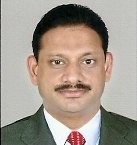
Managing Director Harrisons Malayalam Ltd

Executive Director International Competence Centre for Organic Agriculture (ICCOA)

HR Director Sodexo

HR Director ONGC

Group Chief People Officer Good Glamm Group

Chief Operating Officer Artha Group of Companies Mumbai
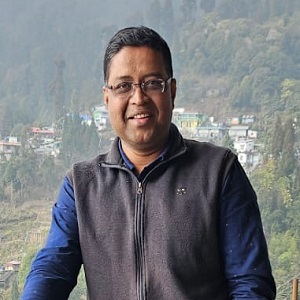
Regional BDM, Burger King Accenture

Head HR, Kshema Power

I V S Head - HR Shriram Bioseed

Head – Human Resources, India Cluster JLL
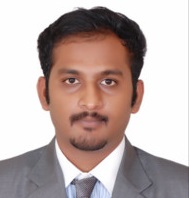
Assistant Manager HR General Mills

Head Performance & Talent Management, Samunnati Financial Intermediation and Services Pvt ltd

CEO Fairtrade India

Founder Resource tree

HR Manager Swastik Foods Pvt Ltd.
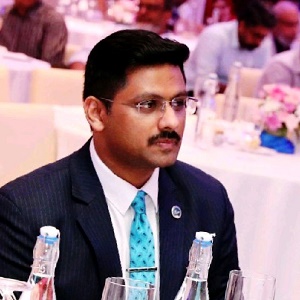
CRO, Federal Bank

HR Accenture
Inaugural Session
Strategic human resource management for sustainable business
| Mr. Santhosh Kumar Managing Director, Harrisons Malayalam Ltd | Mr. Kartik Rao Group Chief People Officer, Good Glamm Group |
| Mr. Abhishek Jani CEO, Fairtrade India | Mr. Ranganath I V S Head – HR, Shriram Bioseed Genetics & Bioseed Research India |
| Mr. Aravind CRO, Federal Bank |
Aligning Talent with Sustainability Goals
| Mr. Manoj Menon Executive Director (ICCOA) | Ms. Sandesha Jaitapkar Chief Operating Officer Artha Group of Companies |
| Ms. Meenakshi Cornelius Head – HR India Cluster, JLL | Mr. Shivakumar Founder Resource tree |
| Mr. Aravind CRO, Federal Bank |
| Mr. Pradeep HR Director, Sodexo | Mr. Shantshill Roy Regional BDM, Burger King |
| Mr. Srikanth HR Manager, Swastik Food Pvt Ltd | Ms. Akshatha Sena HR Accenture |
Network Lunch
Leadership Development for Sustainable Leadership
Dr. Alka Mittal | Mr. Dinesh Prabhakar Head HR, Kshema Power |
| Mr. Ankur Rana HRBP Talent Acquisiton Samunnati | Mr. Suhas J. Ram Assistant Manager HR, General Mills |
We are here to help you achieve your academic goals. Leave your details below and our coordinator will contact you.